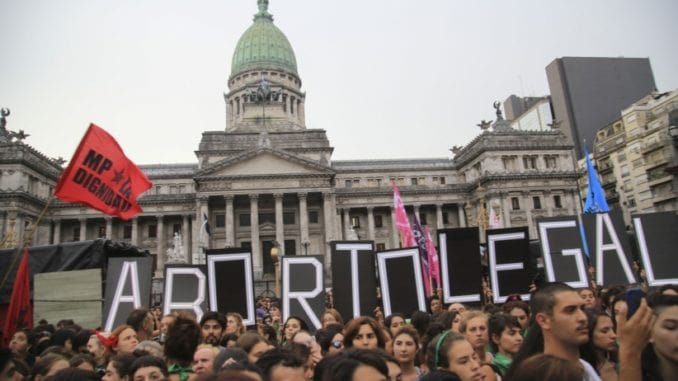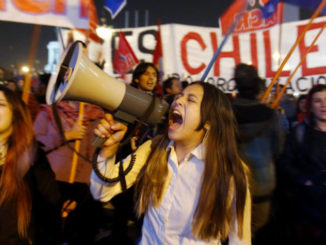
BUENOS AIRES – The lower house of Argentina’s congress has narrowly approved a bill that would legalise abortion in the first 14 weeks of pregnancy in what has been described as a historic move.
The bill was narrowly passed by the chamber of deputies by 129 to 123 votes on Thursday and will now go before the senate. Argentina’s president, Mauricio Macri, has said he will sign it if it is approved.
“We are dealing with a public health issue that cannot be addressed with blinders, nor with morals and ethics and much less religion,” opposition congresswoman Mayra Mendoza, one of the driving forces of the proposal, said in a speech. “This is also a matter of social justice.”

The opposition, as well as allies of President Macri, were divided on the issue. Mr. Macri has encouraged his party members to vote as they see fit even though he is personally opposed to the proposal.
Mariela Belski, Amnesty International executive director in Argentina, welcomed the move. “New legislation could end a vicious circle where women have no option but to risk their lives, their health, and their freedom if they are sent to prison. Classifying the legal termination of a pregnancy as a crime has no basis in international law,” said Mariela Belski, Executive Director of Amnesty International Argentina,” she said.
Under the current legal framework, Argentina adheres to the model of decriminalization on certain grounds, whereby an abortion is deemed illegal unless there is a risk to the life or health of the woman, or in cases of rape. The bill, which has just been passed by the Chamber of Deputies, completely decriminalizes abortion up to 14 weeks of pregnancy.

The debate has divided Argentine society. Though Argentina became the first Latin American country to legalise same-sex marriage in 2010, it remains strongly influenced by the Catholic Church and by Pope Francis, who was formerly the archbishop of Buenos Aires.
The Church strongly opposes the new measure.
Jon O’Brien, president of Catholics for Choice, said: “We congratulate the Argentinian chamber of deputies and the Argentinian people for taking a historic first step towards justice for women. For too long, Argentina’s strict abortion law has unfairly punished women, especially poor women.
“As Ireland, and Chile before it, have demonstrated, Catholics can be and often are pro-choice. And indeed Catholic-majority countries can and often do support legislation for safe and legal abortion. Catholics revere individual conscience and support policies that allow all women – especially those without power and privilege – to make their own moral decisions about their bodies safely and freely.”

According to official health ministry statistics, more than 17% of the 245 recorded deaths of pregnant women and girls in 2016 were due to abortion. NGOs say some 500,000 clandestine abortions a year are carried out every year.
In Latin America, unrestricted abortion is legal in Uruguay, Cuba and Mexico City. In almost all countries, it is available in case of a risk to a woman’s life or in cases of rape.
However, a blanket prohibition exists in the Central American states of El Salvador, Honduras and Nicaragua.



